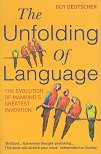
Does the language we speak affect the way we see the world? Ever since the widely discredited Sapir-Whorf hypothesis, the answer has been firmly "no; any thought that can be expressed in one language can be expressed in any other".
After long and careful study and analysis, the Hopi language is seen to contain no words, grammatical forms, constructions, or expressions that refer directly to what we call `time'.
(Benjamin Lee Whorf, 'An American Indian Model of the Universe', 1936)
pu' antsa pay qavongvaqw pay su'its talavay kuyvansat, pàasatham pu' pam piw maanat taataynaMalotki's book goes on to describe, in 677 pages of small print, the numerous expressions for time in the Hopi language, as well as the tense and aspect system on its 'timeless verbs'. Incredible how much a language can change in forty years.
Then indeed, the following day, quite early in the morning at the hour when people pray to the sun, around that time then, he woke up the girl again
(Ekkehart Malotki, Hopi Field Notes, 1980)
But, of course, it's not as simple as that. Here Deutscher examines the case in some detail. He starts out looking at the language of colour, from Homer's "wine-dark sea" and violet sheep, to "primitive" tribes and their relatively small colour vocabularies. He discusses why societies that have no exposure to artificial colours, so that they tend to experience a colour only in concrete objects, never in abstract ideals, actually have no need for a colour vocabulary. He has a rather nice little analogy with a science fictional scenario requiring a complex and abstract flavour vocabulary, and how people from the future wonder at our "primitive" language that has no words to express such flavours. And, in case the reader is getting too smug about colour, there's an interesting little aside into Russian, and how it has two words for "blue" (one for light blue and dark blue); these are different colours in Russian.
He moves on, focussing not on what you can't say in a given language, but rather, what you have to say.
He covers languages that require you to state both when an event happened and when you inferred that it had happened: in Matses you can't just say "pigs passed by here", you have to say something like "pigs passed by here; I found out a long time ago, it happened shortly before that" (of course, the language has short words, not long phrases, for the qualifiers, but they must be used).
He describes Guugu Yimithirr, the language that gave us the word "kangaroo", but much more interestingly uses absolute rather than geocentric coordinates ("the ant is north of your foot", rather than "the ant is in front of your foot"). The speakers have a marvellously developed sense of orientation.
He talks about the so-called "central finding" of linguistics that "all languages have the same complexity", and scathingly discusses how this "finding" not only has never been established (there is no reference to this finding in the endnotes of various texts that claim it; his own copious endnotes include the identity of those offending texts), but doesn't even make sense (what is the measure of language complexity?)
He also has a short section on gender in language, but without mentioning Lakoff.
What all these carefully examined examples show is that although language may not determine how we think, it certainly influences how we think, but more because of the distinctions a particular language forces us to make. All this is written in a sometimes laugh-out-loud and wonderfully readable style (although it does on occasion stray somewhat towards the purple end of the spectrum).